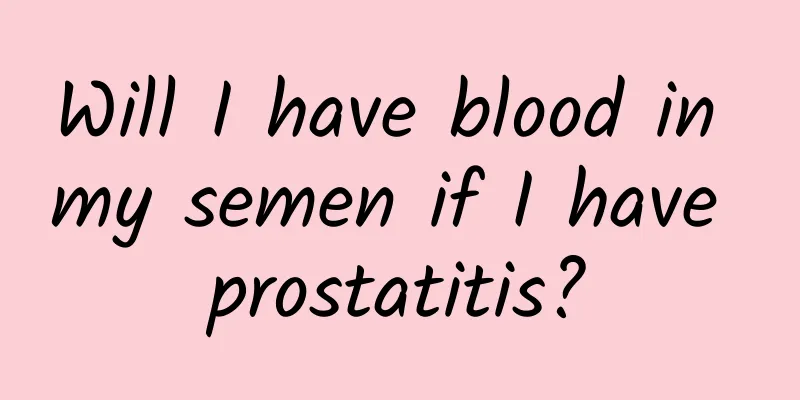How does Chinese medicine believe that the circulation of Qi and blood is carried out?

|
If a healthy person wants to look rosy-complexioned, his face should be free of spots. When a person is full of vigor and energy, it often requires that his blood circulation system is healthy and smooth. Once there is a problem with the circulation of qi and blood, it is often very harmful and may cause disease. How does it work? The heart, one of the five internal organs, is located in the chest. It promotes the circulation of blood throughout the body's meridians and plays an important role in human life activities, spirit, and consciousness. When the heart qi is vigorous and the heart blood is full, the face will be ruddy and shiny. When the heart qi is weak, the mind will be uneasy. When the heart qi is weak, it is easy to have a panic emotion. . The lungs are located in the chest and connect to the throat, controlling the internal and external air. Its functions are, first, regulation within the body, and second, exchange between the inside and the outside. It distributes the essence of body fluids and food throughout the body and expels turbid air from the body; it inhales fresh air and transforms body fluids into sweat and excretes it from the body; it reverses the flow of water and transforms it into urine through the kidneys and bladder and excretes it from the body. The blood in the body is distributed throughout the body through the joint action of the heart qi and the lung qi. The nose and throat are connected to the lungs and are the gateway to the lungs. It is often said that the lungs open up to the nose and mucus originates from the nose. Abnormalities in the lungs can be reflected in the mucus, and when the lungs are weak, it is easy to produce sad emotions. The spleen is located in the middle burner and is connected to the stomach by a membrane. Its function is to help the stomach transform food into essence, which is transported to the whole body through the spleen to nourish the five internal organs and six bowels; the spleen's transportation and transformation function mainly lies in the spleen, which mainly ascends, transporting the essence of food to the heart, lungs, and head, and is transformed into qi and blood through the heart and lungs to nourish the whole body; it commands the circulation of qi and blood in the meridians to prevent it from overflowing out of the meridians. If the spleen is strong, the muscles will be plump, the limbs will be strong, and the appetite will be good; if the spleen is weak, there will be excessive thinking and reduced saliva. The liver is located in the ribs. Its function is to regulate the qi and blood of the whole body, help digestion and absorption, regulate mental will, and is responsible for the blood distribution to various parts of the body. When the liver is full of blood, the limbs will be flexible and lustrous. Its meridians are connected to the eyes, so Chinese medicine says that the liver opens up to the eyes. Anger hurts the liver, and tears come out of the eyes, so tears are the fluid of the liver. The kidneys, located in the waist, are responsible for the growth, development and reproduction of the human body. From the perspective of yin and yang, the function of nourishing and moistening the internal organs of the human body is called kidney yin, and the function of promoting warmth and heating the internal organs of the human body is called kidney yang. These two are the foundation of the yin and yang of each organ, dominate the entire metabolism of water, and have the function of absorbing air. When the kidney qi is full, the ears and both genitals (the front genitalia is the urethra and the back genitalia is the anus) are strong. The gallbladder is one of the six internal organs and is attached to the liver. It is the exterior and interior of the liver. The bile stored in the gallbladder is produced by the excess qi of the liver. Courageous and decisive, bile is injected into the small intestine to aid digestion. The stomach is located in the middle burner. The upper opening is the pylorus connecting to the esophagus, and the lower opening is the pylorus connecting to the small intestine. The food we eat is stored in the stomach through the esophagus, and is then digested in the stomach and passed to the small intestine. Its essence is transported and transformed by the spleen to nourish the whole body. The small intestine is located in the abdomen. It is connected to the stomach at the top through the pylorus and to the large intestine at the level through the cervix. It acts as a container for food that has been initially digested by the stomach. The food is slowly transported down the small intestine, allowing it to be further digested and absorbed in the small intestine. It separates the clear from the turbid, and the essence is absorbed by the spleen and transported throughout the body; the residue is transported to the large intestine to form feces, and the remaining water is transformed into qi by the kidneys and seeps into the bladder to form urine. The large intestine is located in the abdomen. Its upper end is connected to the small intestine at the cervix and its lower end is connected to the anus. It transmits food residues downward, absorbs some water, and turns it into feces, which is then discharged from the body through the anus. The bladder is located in the lower abdomen and is used to store and excrete urine. The triple energizer is the general term for the upper, middle and lower energizers. Kidney Qi is distributed throughout the body through the triple energizer, and the triple energizer is also the channel for the rise and fall of water. The upper part of the body is the heart, lungs and head above the diaphragm; the middle part of the body is the spleen and stomach below the diaphragm and above the navel; the lower part of the body is the liver, kidneys, large and small intestines, bladder and genitals below the navel. Traditional Chinese medicine believes that if Qi and blood want to flow smoothly, then further conditions must be met. For individuals, don't eat spicy food casually. And don't go for a walk to eat irritating food. Otherwise it will be very harmful. |
<<: What are the traditional Chinese medicine remedies for treating athlete’s foot?
>>: What are the pros and cons of sweat steaming?
Recommend
Cactus for breast lumps
Breasts are of extraordinary significance to wome...
Difference between ovulation bleeding and menstruation
In life, many people are not clear about what ovu...
Causes of fetal ventriculolysis
The human brain may develop many diseases, such a...
What is the best sleeping position when you are four months pregnant? What are the dangers of improper sleeping posture?
In the second half of pregnancy, because of the b...
Minimally invasive facial wrinkle removal
Women always love beauty, especially when wrinkles...
Can honeysuckle, ophiopogon japonicus and licorice be soaked in water?
Honeysuckle, Ophiopogon japonicus and licorice ca...
Normal range of wound effusion after lumbar spine surgery
Generally, there will be some fluid accumulation ...
Why does folliculitis occur?
Many people suffer from folliculitis. There are m...
What to do if your lips are very dark
If your lips turn black, you should be alert. The...
Sleeping posture of baby with cerebral palsy
If a child has cerebral palsy, he or she will oft...
Is American ginseng a diuretic?
I believe everyone has heard about the role of Am...
What to do if women have postpartum urticaria
Many women will also experience symptoms of urtic...
Which one is more harmful to health: fat particles or oil particles
Fat granules and oil granules are both relatively...
What are the symptoms of diarrhea and dehydration in adults?
Diarrhea is also called loose stools. If the diar...
What causes pain in the ring toe?
Although the feet are far away from the heart, th...









